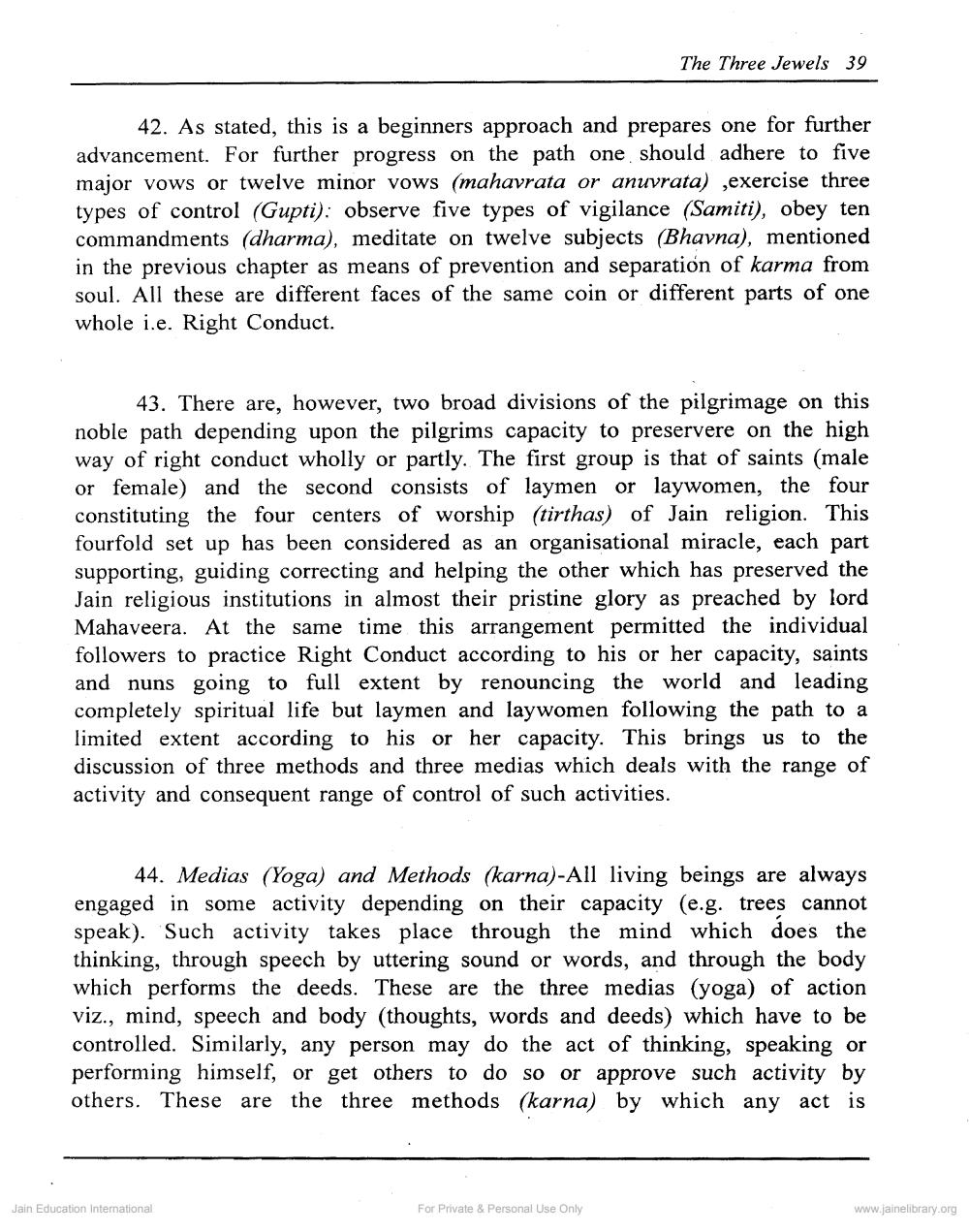________________
The Three Jewels 39
42. As stated, this is a beginners approach and prepares one for further advancement. For further progress on the path one should adhere to five major vows or twelve minor vows (mahavrata or anuvrata) ,exercise three types of control (Gupti): observe five types of vigilance (Samiti), obey ten commandments (dharma), meditate on twelve subjects (Bhavna), mentioned in the previous chapter as means of prevention and separation of karma from soul. All these are different faces of the same coin or different parts of one whole i.e. Right Conduct.
43. There are, however, two broad divisions of the pilgrimage on this noble path depending upon the pilgrims capacity to preservere on the high way of right conduct wholly or partly. The first group is that of saints (male or female) and the second consists of laymen or laywomen, the four constituting the four centers of worship (tirthas) of Jain religion. This fourfold set up has been considered as an organisational miracle, each part supporting, guiding correcting and helping the other which has preserved the Jain religious institutions in almost their pristine glory as preached by lord Mahaveera. At the same time this arrangement permitted the individual followers to practice Right Conduct according to his or her capacity, saints and nuns going to full extent by renouncing the world and leading completely spiritual life but laymen and laywomen following the path to a limited extent according to his or her capacity. This brings us to the discussion of three methods and three medias which deals with the range of activity and consequent range of control of such activities.
44. Medias (Yoga) and Methods (karna)-All living beings are always engaged in some activity depending on their capacity (e.g. trees cannot speak). Such activity takes place through the mind which does the thinking, through speech by uttering sound or words, and through the body which performs the deeds. These are the three medias (yoga) of action viz., mind, speech and body (thoughts, words and deeds) which have to be controlled. Similarly, any person may do the act of thinking, speaking performing himself, or get others to do so or approve such activity by others. These are the three methods (karna) by which any act is
Jain Education International
For Private & Personal Use Only
www.jainelibrary.org




